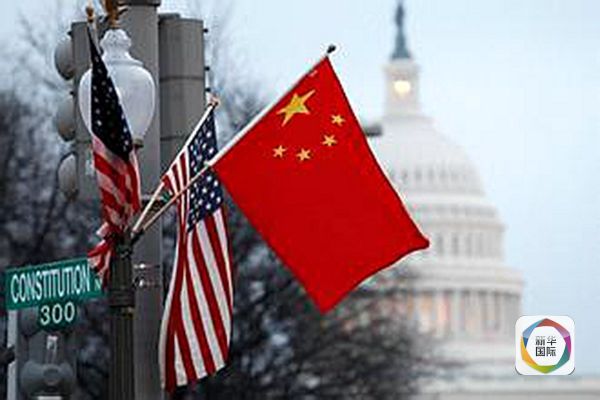


The U.S. has yet to fully embrace China as its peer, but it should. Not only should the U.S. embrace China as its peer, it should take seriously Xi Jinping’s idea of creating a new major-country relationship model. That proposal is not a challenge to the U.S.-led order, but a starting point solution for overcoming the tragic history of great power politics. In fact, a recent conference on national security largely ended on this same down-to-earth note.
The CIA and Georgetown University hosted a public conference on national security called INTELCON on Sept. 20, 2016, featuring scholars and experts from across the U.S. Five panels of experts examined five national security topics and the first panel engaged the topic of whether great power rivalry is an enduring danger or a thing of the past. Discussed by John McLaughlin of Johns Hopkins University, Peter Clement of CIA, and Dennis Wilder of Georgetown University, the experts agreed that great power rivalry is enduring, but also recognized its more nuanced form.
The discussion began with some historical facts about what McLaughlin describes as an atypical century. For example, he talked about how the U.S. had an unchallenged position in the world for about 17 years till the financial crisis rattled U.S. confidence in its position. Wilder continued that point when discussing China. He said the financial crisis changed China’s world view. Then, in 2012, Xi proposed to work with the U.S. to build a new major-country relationship without conflict, without confrontation, with mutual respect, and win-win cooperation. China’s message was loud and clear. We share the same stage now, so let us try something different. “We’ve struggled with that since 2012,” said Wilder.
After the unipolar moment ended, the world shifted from a simple “black-and-white” world to a complex “gray” world; a more nuanced world, but U.S. strategy is still catching up. “We don’t have a lot of practice with this type of world,” McLaughlin said. Take the U.S. pivot for example, which was a classical response to great power politics and a rejection of Xi’s proposal. Economically, the also U.S. feels challenged. China’s big transformational ideas, such as the Asian Infrastructure Investment Bank that many U.S. allies play a role in and the Belt and Road initiative, are game-changing ideas. And they are not U.S. ideas. “[They] rival anything the United States has come up with in terms of changing the dynamic,” said McLaughlin. The U.S. remains a powerful force, but is losing its edge. The U.S. needs to adapt.
If the basic premise of great power rivalry has changed, so should the approach. On this point, Wilder’s advice is practical and realistic. The U.S. should invest more heavily in understanding the Chinese position and vice versa, and the two sides should figure out what a new major-country relationship means. Though rivals on some levels, China and the U.S. are linked and need each other’s help to solve problems. The last thing China wants is conflict with the U.S., but China does want the U.S. to respect its sphere of influence. If the U.S. can understand this point and sit down with China to work out a solution to the tragic history of great power politics, then perhaps conflict and confrontation can be avoided. It is certainly worth a try.
 Fire brigade in Shanghai holds group wedding
Fire brigade in Shanghai holds group wedding Tourists enjoy ice sculptures in Datan Town, north China
Tourists enjoy ice sculptures in Datan Town, north China Sunset scenery of Dayan Pagoda in Xi'an
Sunset scenery of Dayan Pagoda in Xi'an Tourists have fun at scenic spot in Nanlong Town, NW China
Tourists have fun at scenic spot in Nanlong Town, NW China Harbin attracts tourists by making best use of ice in winter
Harbin attracts tourists by making best use of ice in winter In pics: FIS Alpine Ski Women's World Cup Slalom
In pics: FIS Alpine Ski Women's World Cup Slalom Black-necked cranes rest at reservoir in Lhunzhub County, Lhasa
Black-necked cranes rest at reservoir in Lhunzhub County, Lhasa China's FAST telescope will be available to foreign scientists in April
China's FAST telescope will be available to foreign scientists in April "She power" plays indispensable role in poverty alleviation
"She power" plays indispensable role in poverty alleviation Top 10 world news events of People's Daily in 2020
Top 10 world news events of People's Daily in 2020 Top 10 China news events of People's Daily in 2020
Top 10 China news events of People's Daily in 2020 Top 10 media buzzwords of 2020
Top 10 media buzzwords of 2020 Year-ender:10 major tourism stories of 2020
Year-ender:10 major tourism stories of 2020 No interference in Venezuelan issues
No interference in Venezuelan issues
 Biz prepares for trade spat
Biz prepares for trade spat
 Broadcasting Continent
Broadcasting Continent Australia wins Chinese CEOs as US loses
Australia wins Chinese CEOs as US loses